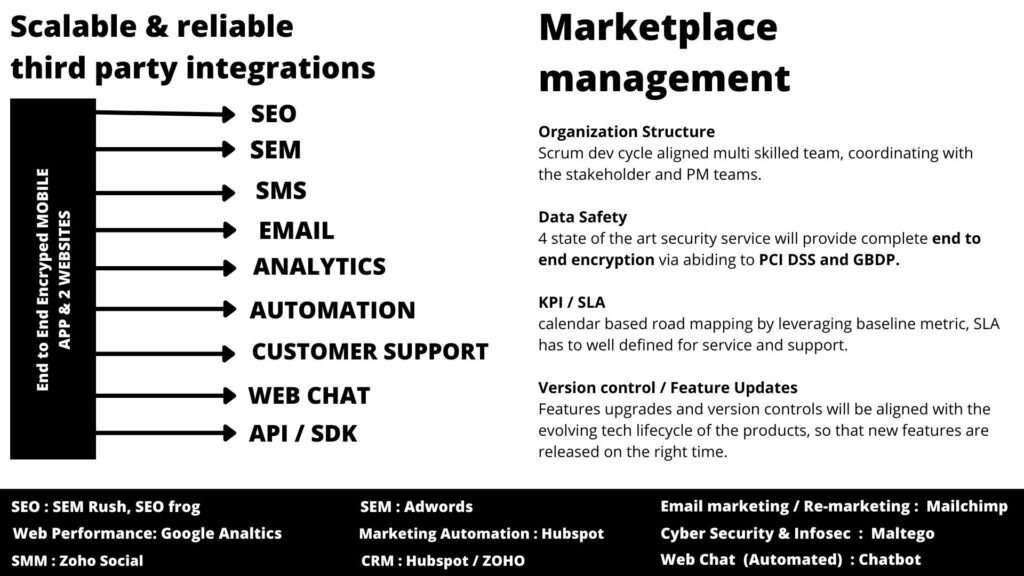E-commerce, electronic commerce is a modern digital business process of selling and buying. Digital commerce is a trillion-dollar space, as the major e-commerce giants are worth 100s of billions of dollars, the commercial activities carried out digitally are referred to as e-commerce.
The digitized and standardized form of electronic commerce is referred to as E-commerce. E-commerce transactions worldwide have a GMV of trillions of dollars. All the tech majors are harnessing and leveraging the power of E-commerce to carry out buying and selling at hyper-scale.
The digital nature of E-commerce reduces transaction latency, ensures faster turnaround time, and faster and smoother payment systems.
These are some basic features that are standardized in the e-commerce segment:
- Seller Handling
- Social Login
- Vendor onboarding
- Payment System
- Commission System
- Integrated CRM
- Supply Chain Management
- Invoice/ billing
- Shopping Module
- Texting Module
- Powerful Analytics
- Review System
- Profile System
- Management and Tracking
- Apis
- Multi-Lingual Support
- Inventory Management
- Logistics Management
- Product Launches
- Offers
- Dynamic Taxation System
These are the set of systems that work in tandem and co-ordination to render a holistic and scalable e-commerce system, the e-commerce platform is in App format across all platforms. The e-commerce space is increasing at double digital CAGR due to faster, more reliable, and latency-less payment systems.
E-commerce frameworks like open cart, Magento, and Shopify are leveraged by millions of vendors to create an HQ e-commerce experience for the end user.
Diagrams


The article above is rendered by integrating outputs of 1 HUMAN AGENT & 3 AI AGENTS, an amalgamation of HGI and AI to serve technology education globally.